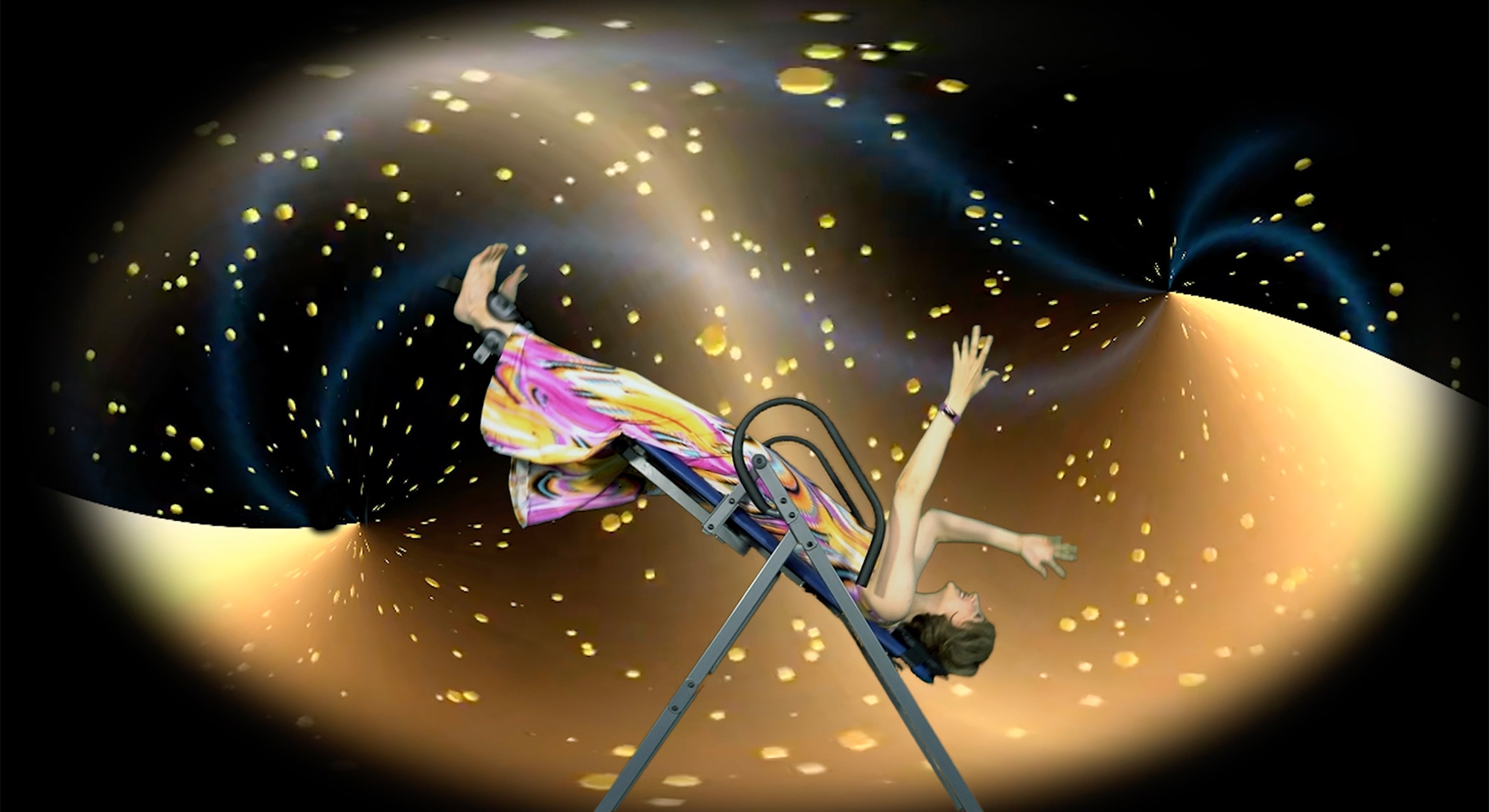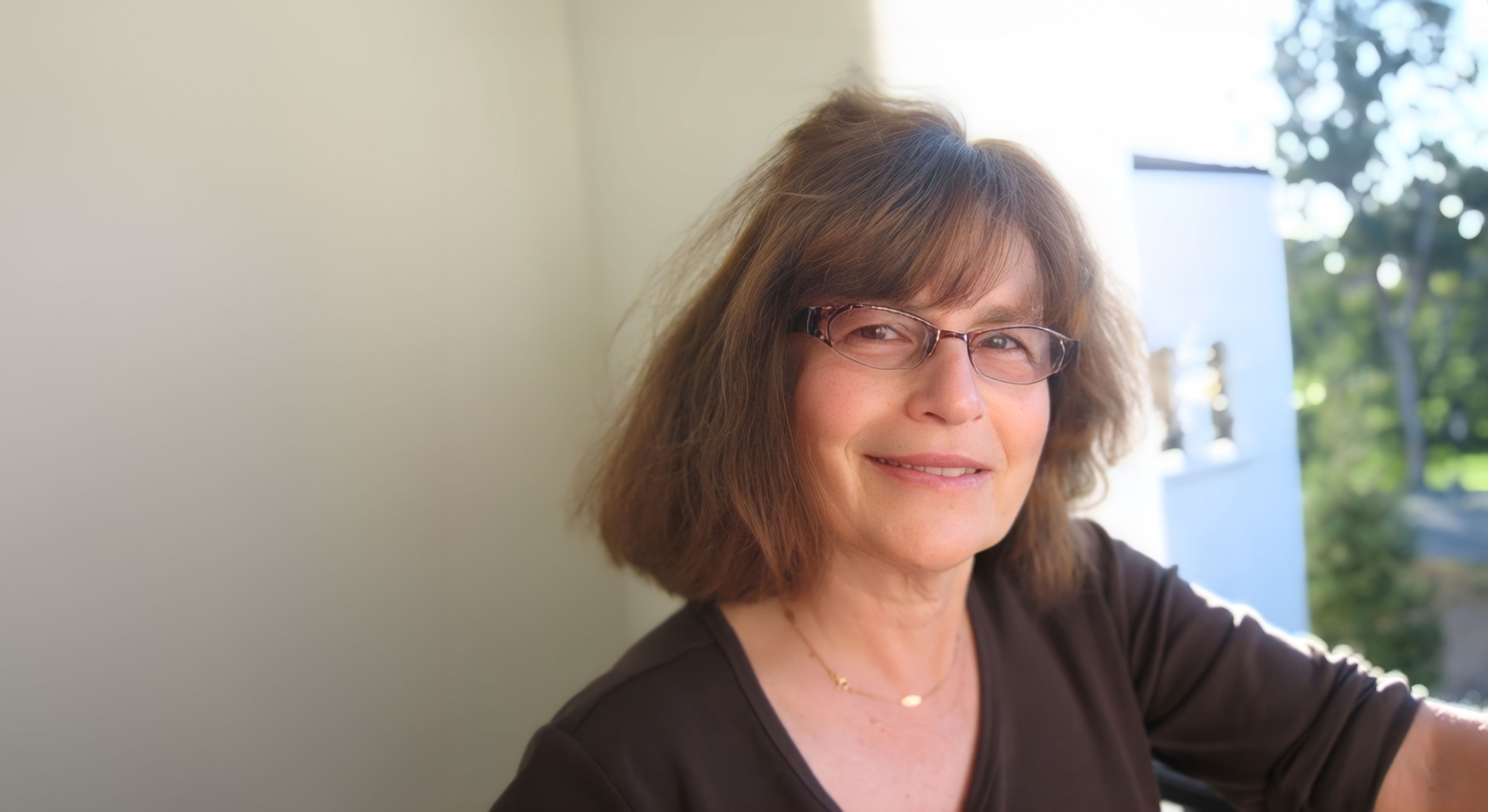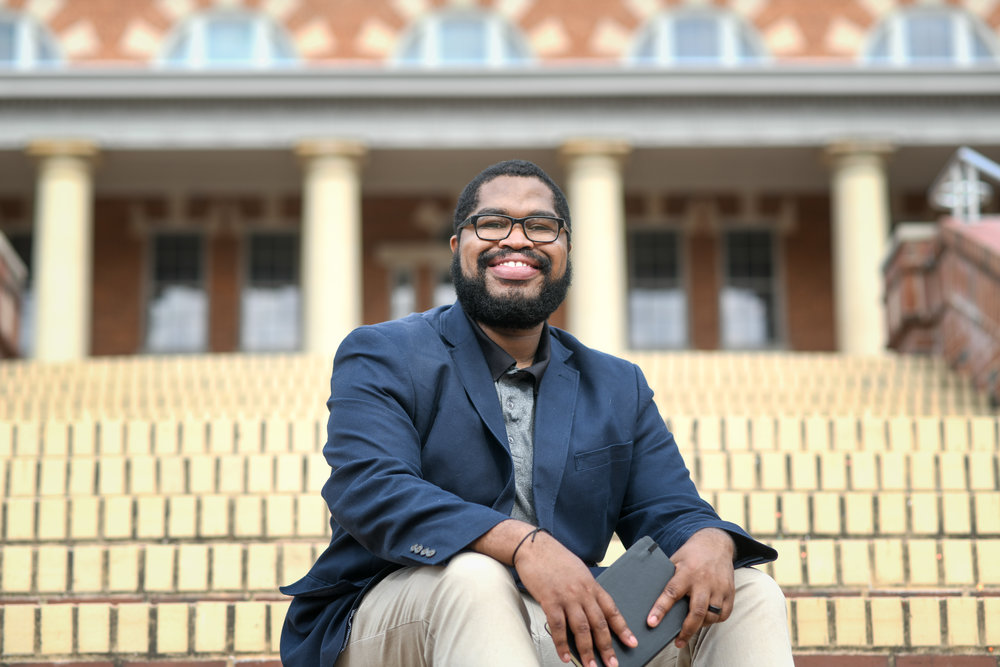
Playing With Language
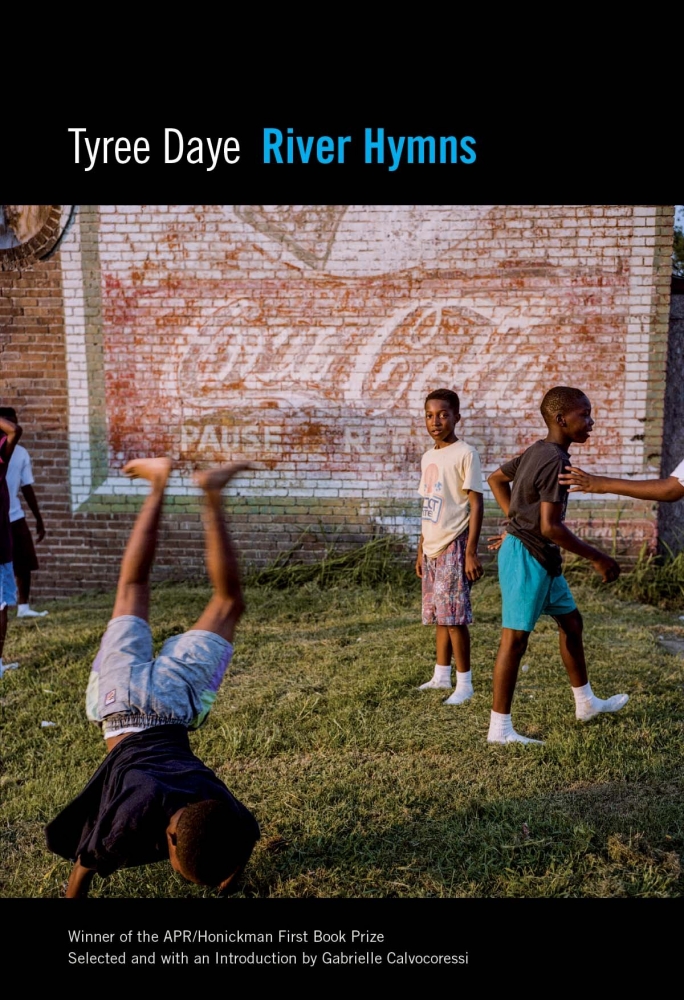
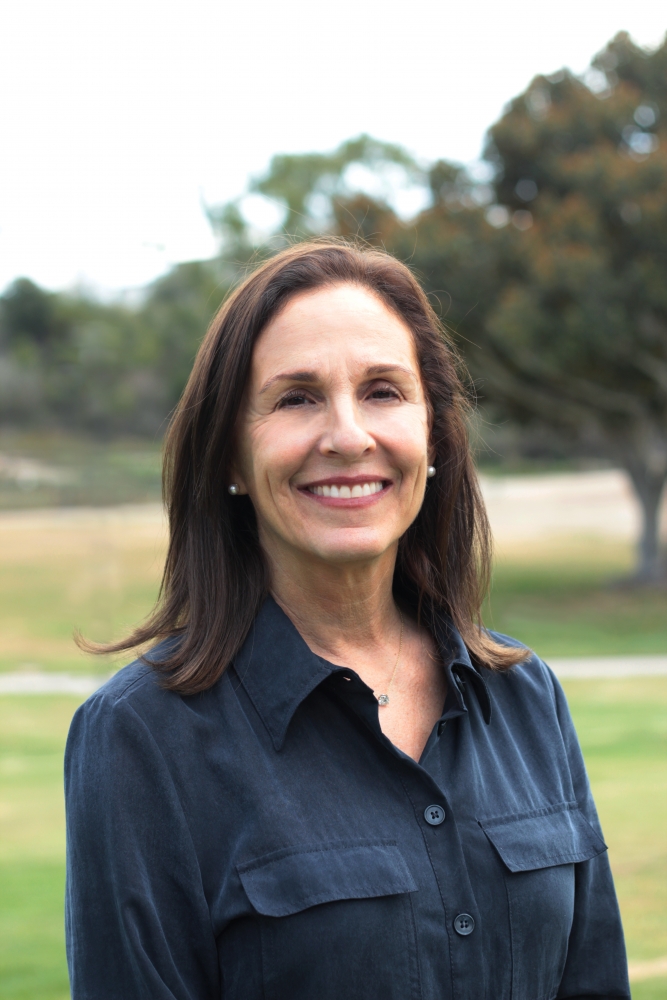
A whole lot of young writers find their voice by setting themselves apart from the environment that produced them. Poet Tyree Daye, the 2019 Diane and Simon Raab Writer in Residence at UC Santa Barbara's Interdisciplinary Humanities Center, took the opposite path.
“I am an ancestor worshipper,” said the 28-year-old recent winner of the prestigious Whiting Award. “My ancestors literally made way for me. My home town is very much ingrained in my writing.”
“He’s not a man leaning over a ledge in a solitary turret,” agreed IHC Director Susan Derwin, who, along with a faculty committee selected him for the honor. “His work is a beautiful instance of place-based writing — he writes about his community, his family, his immediate environment — and yet his poems are also inner explorations.”
In Daye’s case, that community is the tiny town (population 1,100) of Youngsville, North Carolina, about 30 miles from his current home of Raleigh. It was, and is, an impoverished place, but Daye insists that “I didn’t know how poor I was when I was little,” thanks to all the love he received from his family and friends.
His mother is, and remains, an inveterate reader — mostly novels — and at some point in childhood, Daye started imitating her. By sixth grade, he was writing his own short stories. Then, during his junior year of high school, Mom gave him as a present the collected poetry of Langston Hughes.
“That book changed the course of my life,” he said. “I fell in love with poetry and started writing my own poetry. I can still hear and see Langston Hughes in my work. I have a very specific meter in my lines, and I think that’s from reading Langston Hughes. It’s the undertone of the blues in his lines. I could be watching a movie, or talking with a friend, or hanging out with other poets. If we hear a line that we like, we slap the table and say, ‘That’s mine!’
“I tell my students to think about going to the neighborhood pool in the summertime," Daye continued. "You play this game where you see how long you can hold your breath. I like to think about a poem that way. When you’re underwater, that’s the images of the poem. When you come up and take a breath, that’s when you make meaning of these images, or give them an identity.”
He might start, for example, with the line, “Tobacco fields stretch for miles and miles.”
“Then I take a deep breath and say, ‘So much of my family is made from these fields,’ he went on. “That’s me giving meaning to that image. A lot of my poems move from under water to above water and back again.”
Derwin senses that inner world/outer world dynamic in Daye’s work. “His distinctiveness is in the way he offers very intimate, personal experience while opening vistas into his external environment,” she said. “He’s very introspective, but he looks out, too.”
She also noted that many writers call his language musical. Daye has a good explanation for that. “I played in the marching band all four years of high school, on the drum line,” he recalled. “Learning how to count music and hear time had a lot to do with me going to poetry.”
Along, of course, with Langston Hughes. “I still have the blues in my language, but I have started bringing in other craft elements, such as playing with the white space on the page,” he said. “I’m trying to reference whatever image I’m showing using the white space on the page. Poetry is text, but at the same time, it’s also art. Poets play with how language looks on the page.”
As writer-in-residence at UC Santa Barbara, Daye follows such distinguished authors as Helen Macdonald, Mary Karr and Gary Shteyngart. He will give a free reading and book signing from 4 to 6 p.m. Wednesday, April 24, in the McCune Conference Room, 6020 Humanities and Social Sciences Building. In addition, he will speak about the writer’s craft with a class in the university’s College of Creative Studies.
The Whiting Prize is structured much like the McArthur “Genius Grant,” in that recipients have no idea they are under consideration until they are told they won. “I was driving from one of my jobs to another in late January when I got the call,” Daye recalled. Given that the award comes with a $50,000 cash grant, he may not need to do quite as much commuting.
One image that recurs in his poetry is the periodic flooding that is a fact of life in his hometown. In view of the reality of climate change, a lot of other communities will soon be facing that particular force of nature on a more regular basis; Daye’s work offers an idea of the toll it takes, and the resilience it leaves behind. As Derwin noted, “His writing is so responsive to what’s happening around him to his community, to its landscapes, and how people are shaped by one another and by the land they inhabit.”
More information about the Diana and Simon Raab Writer in Residence program can be found at https://www.ihc.ucsb.edu/events/writer-residence-series/.
